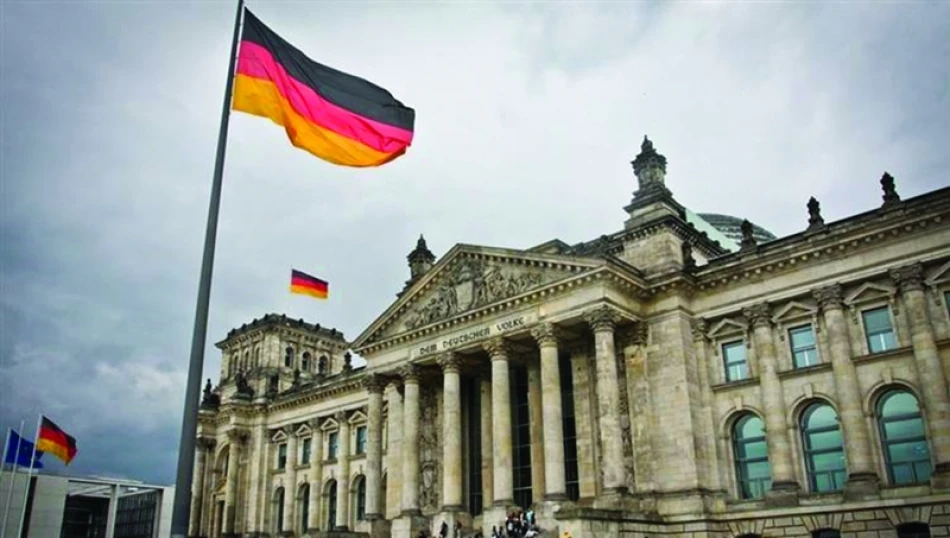
Latest Poll Shows Slight Decline in Popularity for Germany's Governing Coalition Parties
Germany's Political Landscape Shifts as Far-Right AfD Matches Ruling Christian Union in Latest Poll
A new poll reveals a troubling development for Germany's political establishment: the far-right Alternative for Germany (AfD) party has achieved parity with the ruling Christian Union at 25% support each, while the coalition government continues to hemorrhage voter confidence. The survey, conducted between September 8-12, signals potential upheaval in Europe's largest economy as mainstream parties struggle to maintain relevance amid growing populist sentiment.
Coalition Government Faces Mounting Pressure
The Insa Institute poll for Bild am Sonntag newspaper surveyed 1,204 eligible voters and painted a stark picture of German politics. Chancellor Friedrich Merz's Christian Union dropped one percentage point to 25%, while the Social Democratic Party, led by Deputy Chancellor Lars Klingbeil, also fell by one point to just 14% support.
This decline reflects broader challenges facing traditional centrist parties across Europe, where economic uncertainty, immigration concerns, and dissatisfaction with establishment politics have created openings for populist movements. The coalition's struggles mirror similar patterns seen in France, where Marine Le Pen's National Rally has gained ground, and in Italy, where Giorgia Meloni's right-wing party achieved electoral success.
AfD's Steady Rise Signals Deeper Political Realignment
The Alternative for Germany's maintenance of 25% support—unchanged from the previous week—demonstrates the party's ability to consolidate its position despite ongoing controversies. This stability suggests that AfD has moved beyond protest-vote status to become a permanent fixture in German politics, representing roughly one in four voters.
The party's resilience echoes the trajectory of populist movements elsewhere in Europe, where initial electoral breakthroughs have evolved into sustained political influence. Unlike flash-in-the-pan protest parties, AfD appears to have built a durable coalition of supporters drawn from various demographic groups dissatisfied with mainstream alternatives.
Fragmented Opposition Creates Governance Challenges
The poll reveals a highly fragmented political landscape that could complicate future coalition-building efforts. The Green Party holds steady at 12%, while the Left Party maintains 11% support. More concerning for political stability, two parties—the Sahra Wagenknecht Alliance (4%) and the Free Democratic Party (3%)—fall below the 5% threshold required for parliamentary representation.
This fragmentation reflects a broader European trend toward political atomization, where traditional two or three-party systems give way to complex multi-party arrangements. Such scenarios often lead to unstable coalitions or minority governments, potentially hampering decisive policy-making in critical areas like economic reform and climate action.
Economic Implications and Market Uncertainty
The political instability suggested by these polling numbers carries significant implications for Germany's economic trajectory and European Union leadership. Investors typically view political uncertainty as a risk factor, particularly in a country that serves as Europe's economic anchor.
A potential AfD breakthrough could complicate Germany's role in EU decision-making, potentially affecting everything from fiscal policy coordination to sanctions regimes. The party's euroskeptic positions and pro-Russian sympathies could undermine the consensus-building that has characterized German leadership within the bloc.
Polling Limitations and Future Uncertainties
While these numbers provide a snapshot of current sentiment, polling experts caution against over-interpretation. Modern electoral behavior is characterized by weakening party loyalty and late decision-making, making predictions increasingly difficult. Voters frequently change their minds in the final weeks before elections, particularly when faced with the reality of potential coalition arrangements.
The volatility seen in recent German state elections, where last-minute shifts significantly altered outcomes, demonstrates how fluid contemporary politics has become. This uncertainty creates both opportunities and risks for all parties as they navigate an increasingly unpredictable electoral landscape.
Most Viewed News

 Sara Khaled
Sara Khaled






